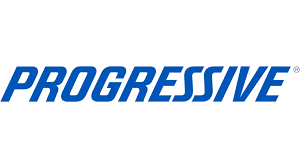Health insurance 101(1)

Health insurance, called health insurance for short, mainly includes medical insurance, health insurance, loss of disability income insurance, nursing care insurance and medical accident insurance. Refers to the personal insurance to which the insurer pays the insurance money when the insured suffers from an illness. The scope of payment for health insurance generally includes medical expenses, loss of income, funeral expenses and living expenses for survivors. This type of insurance is often co-organized with injury insurance, but also with life insurance. In order to prevent moral hazard, the insurer generally provides for a trial insurance period when applying for health insurance, and the insurer is responsible for compensating the damage caused by the insured's illness. after this period.
Category
According to insurance liability
Depending on insurance liability, health insurance is divided into health insurance, medical insurance and income security insurance. The diseases mentioned in health insurance must have the following three conditions: First, they must be caused by obvious reasons not unrelated. Second, it must be caused by non-congenital causes. Third, it must be caused by non-permanent reasons.
By payment method
Health insurance can be divided into three types depending on the method of payment: 1. Type of payment The insurance company pays the insured the insurance premiums in accordance with the contract when the insured suffers from an illness or contractual conditions. The amount of insurance is determined and once the diagnosis is confirmed, the insurance company pays the insurance money in one installment according to the amount of insurance indicated in the contract. Critical illness insurance from each insurance company is one type of payment. 2. Type of reimbursement, the insurance company reimburses the medical costs actually incurred by the insured according to the proportion provided for in the insurance contract. Such as medical insurance for hospital patients, medical insurance for accidental injuries, etc. belong to the reimbursement type. 3. Type of subsidy, the insurance company pays the insurance money according to the actual number of days of hospitalization of the insured person and the elements of the operation. Insurance money is usually calculated on a daily basis, and the total amount of insurance money varies depending on the number of hospital stays and surgical items. Such as medical hospital insurance, hospital insurance, etc. are subsidized.
Characteristics
(1) Insurance period
With the exception of critical illness and other insurance, most health insurance, especially medical expenses, are often short-term contracts of one year.
(2) Actuarial technology
The pricing of health insurance products mainly takes into account the rate of illness, the rate of disability and the duration of the illness (disability). The calculation of the health insurance premium rate is based on the rate of loss of the insurance amount and the reserve of unmatured liability at the end of the year is generally deducted according to a certain percentage of the premium income of the year. In addition, the waiting period, the exemption period, the deductible, the copayment rate and the method of payment, the payment limit will also affect the final rate.
(3) Payment of health insurance
As regards the question whether the principle of compensation applies to health insurance, it cannot be generalized. Expenditure type health insurance applies this principle and constitutes a compensatory payment; while fixed rate health insurance does not apply, the payment of insurance money has nothing to do with actual losses.
(4) Particularity of commercial risks
Health insurance covers the risk of injury and illness. Its influencing factors are much more complicated than life insurance, and anti-selection and moral hazard are more serious. In addition, the risks of health insurance also come from medical service providers, and the amount and price of medical services are largely determined by them, and it is difficult for the insurance company as a payer to control.
(5) Distribution of costs
Because health insurance has high risk characteristics that are difficult to control and unpredictable, therefore, in health insurance, the insurer's responsibility for paying medical insurance premiums for illness often involves many restrictions or restrictive covenants.
(6) Particularity of contractual clauses
Health insurance has not







